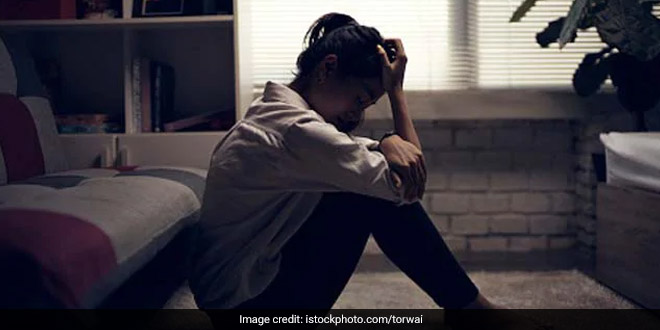Highlights
- More than separation anxiety, grief, bereavement have gripped India: Expert
- There is also anger towards the collective failure of the system: Expert
- Symptoms of cases with comorbidities worsened due to isolation: Experts
New Delhi: As the devastating second wave of the COVID-19 pandemic is gradually subsiding, mental health experts are observing a surge in number of patients putting up with acute “grief or bereavement” after suffering loss of the loved ones. According to mental health experts, grief or bereavement is a feeling of permanent separation due to loss or death and is different from separation anxiety. During the second wave, the country has witnessed an unprecedented upsurge in the death toll.
Also Read: One In Three Adults Anxious, Depressed Due To COVID-19, States A Latest Study
Experts said the intensity of the sense of a permanent loss varied in patients depending on one or multiple deaths in families.
More than separation anxiety, what has grappled the country is grief and bereavement. Such grief was there in the previous disaster as well, however, the present situation is grimmer. With restricted mobility, family members are failing to console each other in person which in return is affecting them with a lot of anxiety and depression. In addition, this time there is anger toward the collective failure of the system, which is compounding the grief, said Dr Rajiv Mehta, vice-chairperson, Institute of Psychiatry and Behavioural Sciences, Sir Gangaram Hospital.
The experts also informed that they are witnessing post-COVID relapses of earlier illness like steroid-induced mania, fog, encephalopathy and brain fatigue. Experts also observed that symptoms of patients with pre-existing conditions worsened due to increased isolation, poor medication adherence and loss of social support during these times.
Patients with pre-existing mental illness especially severe ones like schizophrenia or bipolar disorder are most adversely affected during the COVID pandemic and not enough attention has been paid to them. Mental illness was also not listed in the list of comorbidities which made people eligible for vaccination in the 45 years and above age group in the second stage of vaccination in the country. Patients with common mental disorders like depression and anxiety disorders have also greatly suffered due to the above-mentioned factors,” said Dr Manushree Gupta, Associate Professor, Department of Psychiatry, Vardhaman Mahavir Medical College (VMMC) and Safdarjung Hospital.
The country in late April was in a state of shock by the horrifying images that were being reported from hospitals and crematoriums. There was an unprecedented surge in mortality rate during the second wave of the pandemic and the COVID death toll in the country has mounted to 3,51,309. India reported less than one lakh new COVID-19 cases for the first time after 63 days in the last 24 hours, said the Ministry of Health and Family Welfare on Tuesday. With 86,498 new cases reported in the last 24 hours, the daily COVID cases are the lowest in 66 days. However, the country also reported 2,123 new fatalities in the last 24 hours.
(Except for the headline, this story has not been edited by NDTV staff and is published from a syndicated feed.)
NDTV – Dettol Banega Swasth India campaign is an extension of the five-year-old Banega Swachh India initiative helmed by Campaign Ambassador Amitabh Bachchan. It aims to spread awareness about critical health issues facing the country. In wake of the current COVID-19 pandemic, the need for WASH (Water, Sanitation and Hygiene) is reaffirmed as handwashing is one of the ways to prevent Coronavirus infection and other diseases. The campaign highlights the importance of nutrition and healthcare for women and children to prevent maternal and child mortality, fight malnutrition, stunting, wasting, anaemia and disease prevention through vaccines. Importance of programmes like Public Distribution System (PDS), Mid-day Meal Scheme, POSHAN Abhiyan and the role of Aganwadis and ASHA workers are also covered. Only a Swachh or clean India where toilets are used and open defecation free (ODF) status achieved as part of the Swachh Bharat Abhiyan launched by Prime Minister Narendra Modi in 2014, can eradicate diseases like diahorrea and become a Swasth or healthy India. The campaign will continue to cover issues like air pollution, waste management, plastic ban, manual scavenging and sanitation workers and menstrual hygiene.
[corona_data_new]



























